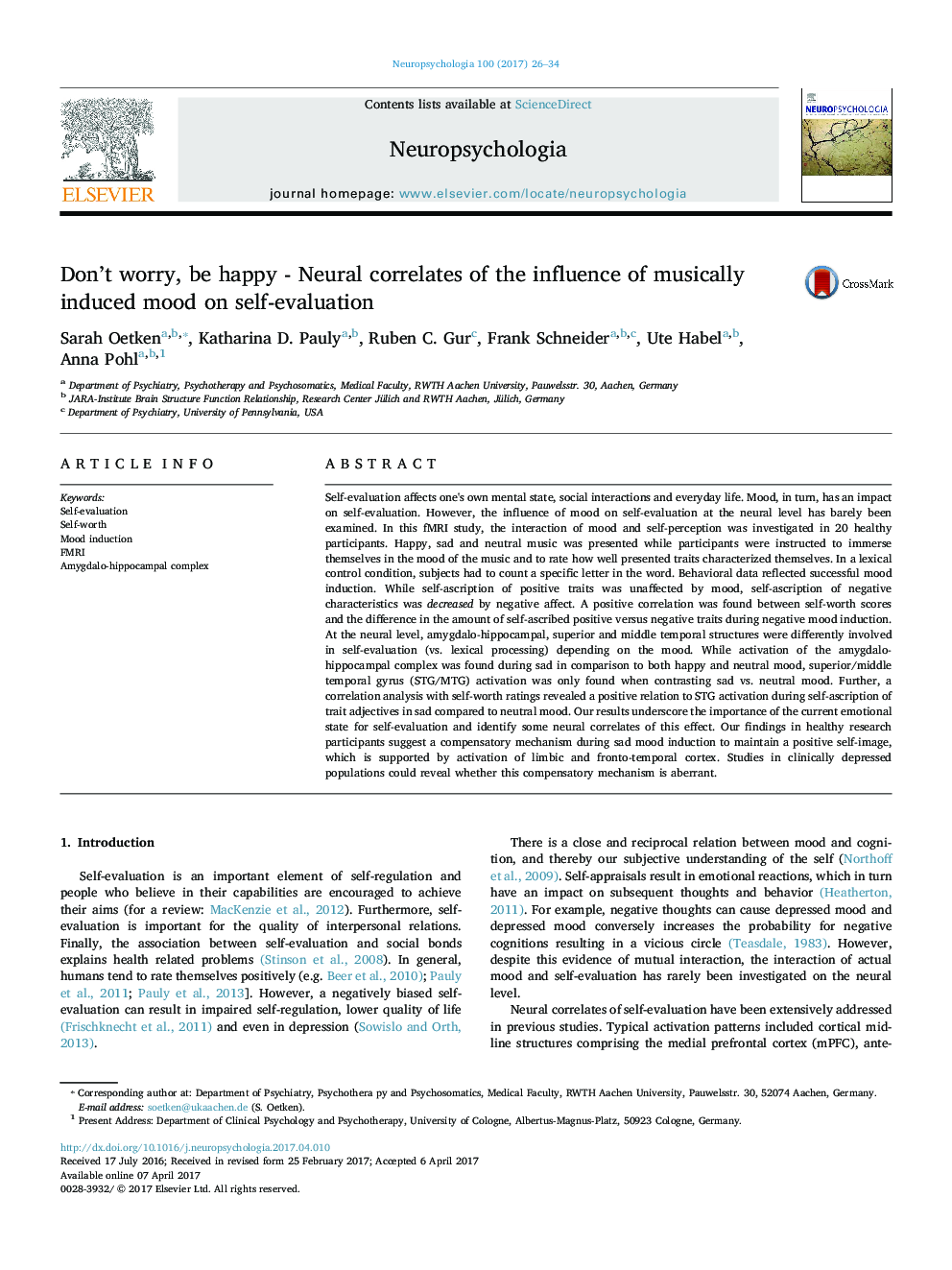| کد مقاله | کد نشریه | سال انتشار | مقاله انگلیسی | نسخه تمام متن |
|---|---|---|---|---|
| 5045065 | 1475555 | 2017 | 9 صفحه PDF | دانلود رایگان |

- New fMRI paradigm to investigate the influence of mood induction on self-evaluation.
- Ascribing positive traits to oneself was unaffected by mood.
- Ascription of negative characteristics was decreased by negative mood induction.
- Higher self-worth leads to a more positive self-evaluation under sad mood induction.
- Self-worth is related to STG activation during self-evaluation in sad vs. neutral mood.
Self-evaluation affects one's own mental state, social interactions and everyday life. Mood, in turn, has an impact on self-evaluation. However, the influence of mood on self-evaluation at the neural level has barely been examined. In this fMRI study, the interaction of mood and self-perception was investigated in 20 healthy participants. Happy, sad and neutral music was presented while participants were instructed to immerse themselves in the mood of the music and to rate how well presented traits characterized themselves. In a lexical control condition, subjects had to count a specific letter in the word. Behavioral data reflected successful mood induction. While self-ascription of positive traits was unaffected by mood, self-ascription of negative characteristics was decreased by negative affect. A positive correlation was found between self-worth scores and the difference in the amount of self-ascribed positive versus negative traits during negative mood induction. At the neural level, amygdalo-hippocampal, superior and middle temporal structures were differently involved in self-evaluation (vs. lexical processing) depending on the mood. While activation of the amygdalo-hippocampal complex was found during sad in comparison to both happy and neutral mood, superior/middle temporal gyrus (STG/MTG) activation was only found when contrasting sad vs. neutral mood. Further, a correlation analysis with self-worth ratings revealed a positive relation to STG activation during self-ascription of trait adjectives in sad compared to neutral mood. Our results underscore the importance of the current emotional state for self-evaluation and identify some neural correlates of this effect. Our findings in healthy research participants suggest a compensatory mechanism during sad mood induction to maintain a positive self-image, which is supported by activation of limbic and fronto-temporal cortex. Studies in clinically depressed populations could reveal whether this compensatory mechanism is aberrant.
Journal: Neuropsychologia - Volume 100, June 2017, Pages 26-34